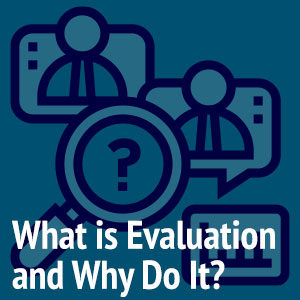 Emotional Intelligence
Emotional IntelligenceIn a previous blogpost, “Interpersonal Skills Enhance Program Evaluation,” we discussed the importance of interpersonal and relational skills for program evaluators. These skills make effective and responsive interpersonal interaction possible. “Emotional Intelligence” underlies many of these skills. Emotional Intelligence, first explored by Daniel Goleman, in his book Emotional Intelligence, Why It Matters More Than IQ, Bantam Books, 1995 is the ability to recognize, manage, and utilize both one’s own emotions and the emotions of others. Emotional Intelligence, as summarized by Eric Ravenscraft in his recent article “Emotional Intelligence: The Social Skills You Weren’t Taught in School,” Lifehacker, February 20, 2019, includes the following elements:
- Self-awareness: Self-awareness involves knowing your own feelings. This includes having an accurate assessment of what you’re capable of, when you need help, and what your emotional triggers are.
- Self-management: This involves being able to keep your emotions in check when they become disruptive. Self-management involves being able to control outbursts, calmly discussing disagreements, and avoiding activities that undermine you like extended self-pity or panic.
- Motivation: Everyone is motivated to action by rewards like money or status. Goleman’s model, however, refers to motivation for the sake of personal joy, curiosity, or the satisfaction of being productive.
- Empathy: While the three previous categories refer to a person’s internal emotions, this one deals with the emotions of others. Empathy is the skill and practice of reading the emotions of others and responding appropriately.
- Social skills: This category involves the application of empathy as well as negotiating the needs of others with your own. This can include finding common ground with others, managing others in a work environment, and being persuasive.
Although Emotional Intelligence (EI) has become an increasingly accepted concept, there are some who question its distinctiveness and validity. Some say that it is difficult to distinguish from regular IQ, that is not really a kind of intelligence but a set of behaviors, and that it is nearly impossible to objectively measure.
A recent article argues that the idea of “reading” the emotions of oneself and of others is itself a problematic conception. In “Emotional Intelligence Needs a Rewrite”, Lisa Feldman Barrett, Nautilus, August 3, 2017, writes that “The traditional foundation of Emotional Intelligence rests on two common-sense assumptions. The first is that it’s possible to detect the emotions of other people accurately. That is, the human face and body are said to broadcast happiness, sadness, anger, fear, and other emotions, and if you observe closely enough, you can read these emotions like words on a page. The second assumption is that emotions are automatically triggered by events in the world, and you can learn to control them through rationality.”
The author offers an alternative, neuroscientific view of how the brain works. She says that our brains “create all thoughts, emotions, and perceptions, automatically and on the fly, as needed. This process is completely unconscious. It may seem like you have reflex-like emotional reactions and effortlessly detect emotions in other people, but under the hood, your brain is doing something else entirely.” Essentially our brains are survival-oriented prediction engines, that produce responses to internal and external stimuli that “become the emotions we experience and the expressions we perceive in other people.” Therefore “Emotional Intelligence requires a brain that can use prediction to manufacture a large, flexible array of different emotions. If you’re in a tricky situation that has called for emotion in the past, your brain will oblige by constructing the emotion that works best.”
Feldman Barrett argues that we don’t so much observe emotions in ourselves and others, as we construct them and predict them. She further argues that we can give our “constructivist” brains (and their concomitant emotions) a boost by enhancing the granularity of our sensitivity to our feelings and emotional states. One way we can do this is by learning greater vocabularies to describe our own and other’s feeling states, and thereby priming our prediction engines to “guess” what others are feeling, with even more specificity.
Whether our brains construct emotions and predict the emotions of others seems largely irrelevant to the issue of the importance of understanding emotions in ways that help us relate to, and interact with, others. In the final analysis, the human social world is composed by thinking and feeling beings, and those who can understand (“predict” in Feldman Barrett’s view) and manage emotions will be better prepared to engage in that world.
Resources:
Daniel Goleman, Emotional Intelligence, Why It Matters More Than IQ. Bantam Books, 1995.
Emotional Intelligence: “The Social Skills You Weren’t Taught in School” Eric Ravenscraft. Lifehacker, February 20, 2019
“What is Emotional Intelligence” Michael Akers & Grover Porter, Oct 8, 2018 Psych Central
“Emotional Intelligence,” Wikipedia


